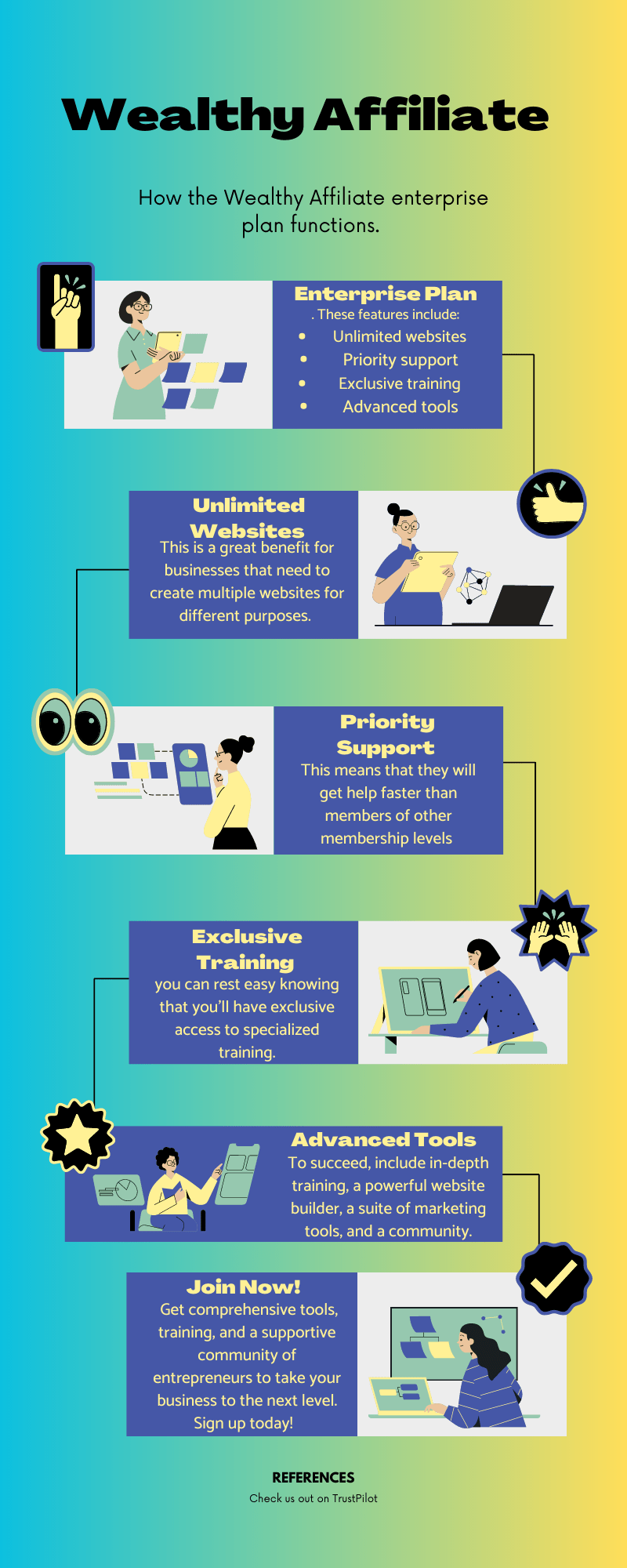I’m going to start off by shedding some light on a topic that often baffles newcomers: organic search. Organic search is a process to get your website seen on search engines like Google, Yahoo!, and Bing. When you type a query into a search engine, the list you see smack dab in the middle of the screen, those aren’t ads � they’re organic search results. These are the spots you can’t pay to jump into; you’ve got to earn them.
Now what sets organic apart from paid search results is pretty straightforward. Paid results usually appear at the top or side of the page – they’re the ones labeled as ‘Ad’. On the other hand, organic results are based on relevance to the search term and the authority of the website. They’re essentially a vote of confidence from the search engine, telling users, ‘Hey, this content is likely what you’re looking for.
Search engines like Google, Yahoo!, and Bing use complex algorithms to ensure they’re serving up the most relevant, high-quality content to their users. This makes organic search one of the most credible ways to achieve online visibility. But, as you might guess, with credibility comes complexity. Getting your site to rank organically can seem overwhelming due to the many moving parts involved.
Why bother with all this, you ask? Well, stats show that the majority of web traffic comes from organic search. So if you’re not playing the game, you’re missing out big time. Plus, higher visibility means more traffic, more conversions, and, ultimately, more success for your brand or business.
That said, firming up your organic search game is not a walk in the park. It requires understanding how search engines work and knowing what they value in a website. Don’t worry too much about mastering everything overnight. Organic search is an ongoing effort, a marathon rather than a sprint. You can always adjust your approach down the road.
So now that you’ve got a grasp of the basics let’s ensure you start on the right foot. Next up, I’m going to talk about setting up your website. This isn’t just about having a good-looking site; it’s also about laying a strong foundation for your organic search efforts. We’ll cover the essentials you need to set up a user-friendly website, from mobile responsiveness to the right kind of structure that search engines love. It’s these details that can make or break your organic search strategy. So let’s get started.
Laying the Groundwork: Website Essentials
Now that we’ve covered what organic search is, I’m going to walk you through the foundational steps you’ll need to lay the groundwork for a successful website. This isn’t just about having a digital storefront; it’s also about creating a base that search engines can understand and appreciate.
First things first, you’ll want a website that keeps visitors engaged. User-friendly design is crucial here. That involves clear navigation, compelling layouts, and ensuring your website is accessible to all users, including those with disabilities.
Don’t worry too much about fancy features at the start. Instead, focus on mobile responsiveness and loading speed. A high proportion of searches are done on mobile devices, so your site needs to look great and function well on phones and tablets. Plus, slow loading speeds can drive visitors away and harm your rankings.
Next up, creating a solid site structure is pivotal for both your visitors and search engine bots. This includes organizing your website’s content into categories and subcategories in a logical way. Think of it like a library system that makes finding the right book a breeze for both library patrons and the librarians who catalog them.
Let’s not forget security – it’s non-negotiable. Secure your website with HTTPS by getting an SSL certificate. Not only does this protect your visitors’ data, it also gives you a bit of a bump in search rankings because search engines prefer secure sites.
Before we get into keyword research, make sure you’re equipped with the right tools. Introduction to SEO plugins or tools like Google Search Console can be really handy. Choose something that resonates with you, or start with tools that are recognized for their ease of use and comprehensive features.
Keyword Research: The Heart of Organic Search
I’m going to let you in on a little secret: keyword research isn’t just important, it’s the backbone of successful organic search strategies. When you peel back the layers of SEO, you find keywords at the very core. Let’s unpack this together. You’re going to find out about the value of keywords, how they connect searchers to your site, and how to identify the ones that are most valuable to you.
First things first: keywords are the phrases that define what your content is about. They’re the words that users type into a search engine when they’re looking for information. If you want your website to show up as a solution to their problems, your content needs to align with these search terms.
Now, how does one go about keyword research? You can always kick off with some brainstorming. Think about the topics most relevant to your website, and then drill down to potential search queries. However, don’t stop there. Using keyword research tools can take your strategy a notch higher. Tools like Google’s Keyword Planner or SEMrush offer insights into search volume, competition, and relevance.
It’s not just about finding the most popular keywords, though; it’s about relevance and competition. Your aim is to uncover those gold nuggets – terms that are highly relevant to your niche but not so competitive that you can’t rank for them. Sometimes it’s the less obvious, long-tail keywords that can be real winners for new websites.
After selecting your keywords, the real work begins: incorporating them naturally into your content. This requires finesmanship; you want to include keywords so they read naturally and genuinely help the reader. Keyword stuffing is a big no-no; search engines are wise to it and it detracts from user experience.
Now, as we pivot from the ‘how’ to the ‘why’, we enter the territory of content quality. Keyword research is just one piece of the puzzle. Creating content that addresses the needs associated with those keywords is where you really start to deliver value. That’s where our next section comes in – Quality Content: Meeting the Criterion of E-E-A-T – and trust me, this is something you can’t afford to overlook in the world of SEO.

Quality Content: Meeting the Criteria of E-E-A-T
I’m going to let you in on a little secret: creating high-quality content is about much more than just filling your website with words. It’s about ticking the boxes of Experience, Expertise, Authoritativeness, and Trust, or E-E-A-T as the pros call it. This isn’t just a cool buzzword, it’s a framework that Google uses to assess content quality, and it’s essential for your organic search success.
You’re going to find out about crafting content that resonates with your audience and establishes your site as a credible source. That means diving into topics that you’re not just familiar with, but also those you have genuine expertise in. Share your unique insights, back them up with data, and, whenever possible, cite authoritative sources.
This isn’t just about proving your knowledge; it’s also about building a relationship with your readers. And trust me, trust is everything here. You want to ensure that your content is accurate, up-to-date, and free of misleading information. A single factual error can dent your reputation, so proofread carefully and update content regularly.
If you want to really stand out, developing original research and offering fresh perspectives can position you as a thought leader in your niche. Practical, actionable advice is always in demand, so if you can provide solutions to common problems, you’re already ahead of the game.
Don’t worry too much about trying to impress with jargon or complicated language. Clarity and ease of understanding are where it’s at. Choose a voice that resonates with your target audience and speaks to their level of expertise, not over their heads.
Now, let’s shift the focus to on-page SEO, where the smart application of these quality content principles can really shine and further boost your organic search initiatives.

On-Page SEO: Optimizing Content for Search Engines
Think of on-page SEO as the art of making your website attractive not only to readers but also to search engines. It’s all about understanding what search engine algorithms are looking for and then tweaking your content to hit those notes perfectly. Sound daunting? Don’t worry too much about it; I’m here to walk you through the basics.
Let’s start with title tags and meta descriptions. These are the bits of text that show up in search results, acting as a billboard for your website. You’ve got to craft them carefully to catch the eye of potential visitors. Include your primary keyword and make your value proposition clear, all within the character limits.
Next up, we’re talking about headings and content structure. Using headings (H1, H2, H3) strategically throughout your content helps search engines understand the hierarchy and main points of your webpage. For your readers, it also breaks the content into digestible chunks. Nobody wants to get lost in a wall of text!
Internal linking and anchor text are your best friends for keeping visitors engaged. Internal links guide users to relevant pages on your own website, which is great for lowering bounce rates. Plus, the anchor text, or the clickable text in a hyperlink, should include relevant keywords that describe the linked page, signaling to search engines what the page is about.
Lastly, let’s talk about images. Everyone loves a good picture, but search engines do not so much. They can’t see images like we can, so you’ve got to use alt text to describe what’s on the image. This not only helps with accessibility but also gives you another shot at including your keywords.

Off-Page SEO: Building Your Site’s Reputation
Off-page SEO might seem like a tough cookie to crack, but I’m here to help you with that. It’s essentially what you do outside of your own website to signal to search engines that your site is trustworthy and authoritative. In my opinion, this is where the game really changes.
The significance of backlinks in SEO cannot be ignored. These are like votes of confidence from other websites, saying, ‘Hey, this content is valuable.’ To earn high-quality backlinks, you should focus on creating content that’s not just good but exceptional. Quality content gets noticed, and people want to link to it.
Methods to earn these backlinks include guest blogging, partnering with other reputable sites, and creating shareable infographics. Remember, it’s not about quantity; one solid link from a respected site can be more beneficial than several from lesser-known sources.
Social media might not have a direct impact on your rankings, but it sure does make a difference in how your content is shared and viewed. Actively engaging with your audience on social platforms can boost visibility and indirectly improve your site’s standing in search results.
Collaboration with influencers and content creators can also enhance your site’s profile. Their endorsement could introduce your site to a broader audience and bring in new backlinks as well.
Lastly, be aware of negative SEO. It’s unfortunate, but competitors can sometimes play dirty. This involves creating spammy backlinks to your site to harm your reputation. Regularly monitoring your backlink profile can help you identify and address these issues before they escalate.
Technical SEO: Under-the-Hood Website Optimizations
Think of technical SEO as tuning the engine of your car to get peak performance. It’s all about making updates and changes to the infrastructure of your site to improve the experience for search engine crawlers when they visit. But it doesn’t stop there; these changes also need to resonate with actual users. This is essential for climbing up the search engine ranks.
Firstly, take a look at your website’s architecture. It’s like the blueprint of your house, guiding both visitors and search engines through your content efficiently. Ensure that your navigation is intuitive and that your URLs maintain a consistent, logical structure. This simplifies the crawling process, helping search engines index your pages more accurately.
Website speed is a huge part of user experience. If your site takes ages to load, you’re going to lose visitors, and your search engine rankings might take a hit. Optimize images, leverage browser caching, and minimize HTTP requests to keep your loading times down. It can make a difference between someone sticking around or bouncing off to a competitor.
You can’t ignore the mobile revolution, either. With most searches now done on mobile devices, Google has switched to mobile-first indexing. This means your site needs to look good and work well on smartphones and tablets. Ensuring a responsive design and optimizing for touch navigation are key factors here.
Lastly, let’s talk about structured data. It’s a form of markup language that gives search engines more context about the content of your site. Implementing schema, for instance, can generate rich snippets in search results, which can improve click-through rates and drive more traffic to your site.
So, with a strong foundation built on technical SEO, you’re poised to move into assessing the impact of all your efforts through analytics, which we’ll dive into next.

Monitoring Performance: Using Analytics to Improvise
Now, I’m going to walk you through how to keep a keen eye on your website’s performance. You can’t improve what you don’t measure, right? So let’s talk about utilizing analytics tools, such as the powerhouse that is Google Analytics.
You’re going to find out about tracking and interpreting the wealth of data you can get on organic traffic. It’s not just numbers and charts; it’s the story of how your audience interacts with your content and what pulls them to your website.
I’ll show you the ropes of setting up SEO goals—because having concrete objectives is a game-changer. It’s like having a GPS for your SEO journey.
Understanding user behavior is the hidden gem in analytics. Why does one page have a high bounce rate while another keeps users engaged for minutes on end? We’ll dig into that and use those insights to make informed decisions.
And let’s not forget about continual improvement. With the intelligence you gather, you can always adjust your approach down the road. In fact, that iterative process is what often separates the successful websites from the stagnant ones.
Choose to embrace analytics, and you’ll pave the way for substantial improvement in your organic search results. Remember, your first attempt doesn’t need to be your last—it’s all about evolving.

Embracing the Ever-Evolving World of Organic Search
I really hope that you’ve found this guide to organic search illuminating and empowering. You’re now aware that stepping into the arena of search engine optimization isn’t just about following a set of rules; it’s about adapting to an ever-changing landscape.
Always remember that the algorithms will keep changing, and what works today might not work tomorrow. That’s a lot of opportunity in organic search—if you’re willing to stay on your toes and keep learning.
Stay plugged into the SEO community for news on the latest Google updates or shifts within Yahoo! and Bing. Choose something that resonates with you, whether it’s a blog, a forum, or an online course. Engage with other experts, share experiences, and keep your knowledge fresh.
Your website is a reflection of your dedication. Regularly audit your site, adjust your strategies, and always aim for a user-centric approach that holds value for your audience. Don’t worry too much about perfection; your first attempt doesn’t need to be your last. You can always adjust your approach down the road.
SEO is a dynamic field that rewards patience, persistence, and adaptability. So, don’t let the complexities daunt you. Just remember to build a solid foundation, produce exceptional and trustworthy content, and be open to change.
Now, it’s your turn to take what you’ve learned and start optimizing. A successful organic search strategy is within your reach. Go for it, and watch your web presence grow.
Martin
Wealthy Affiliate: The Best Platform for Learning about SEO
Are you looking for a way to make money online? Maybe you’ve considered promoting products or services but aren’t sure where to start. With affiliate marketing, the possibilities are endless. This guide will introduce you to affiliate marketing and how the Wealthy Affiliate Platform can help you succeed.
What is Affiliate Marketing?
Affiliate marketing is a method of earning money online by promoting other people’s products or services. As an affiliate marketer, you create content around a product or service, generating leads and driving sales. In return, you earn a commission for every sale made through your referral.

Why Choose Affiliate Marketing?
– Low Start-Up Costs: No need to create your products.
– Flexibility: Work from anywhere, anytime.
– Variety: Promote a wide range of products or services.
Exploring the Wealthy Affiliate Platform
The Wealthy Affiliate Platform is a comprehensive online training course designed to teach you how to make money through affiliate marketing. Whether you are a beginner or have some experience, this platform offers valuable resources and support to help you succeed.
How Does It Work?
Wealthy Affiliate is like a 24/7 virtual classroom. It offers step-by-step lessons on building and growing an online business. Here’s what you can expect:
1. Comprehensive Training: Practical business lessons that are easy to follow.
2. Tools and Resources: Access keyword research tools, website builders, and more.
3. Supportive Community: Connect with other members, get advice, and stay motivated.
Success Stories
Since 2006, Wealthy Affiliate has helped thousands of people worldwide build successful online businesses. Here’s how it works:
1. Sign Up for a Free Account: Start learning and promoting products immediately.
2. Follow the Training Modules: Step-by-step instructions to set up your website and start marketing.
3. Leverage the Community: Get support from experienced marketers and learn from their successes.
Why Wealthy Affiliate Stands Out
– User-Friendly Interface: Easy to navigate and use.
– Proven Track Record: Established platform with a history of success.
– Continuous Updates: Regularly updated content to keep you ahead of the curve.
My Personal Experience
I joined Wealthy Affiliate in October 2016 and have launched two successful websites since then. The training modules are easy to follow, and the community support is incredible. The tools provided have helped me stay motivated and grow my business.
Where to Source Testimonials
- Wealthy Affiliate’s Website/Blog: There are likely success stories showcased here.
- Trustpilot: See what genuine users are saying: https://www.trustpilot.com/review/wealthyaffiliate.com
- Social Media: Search for relevant hashtags on Twitter, Facebook groups, etc. Reach out directly to users expressing praise for the program.
Start Your Affiliate Marketing Journey Today
The Wealthy Affiliate Platform offers a unique opportunity to learn and earn through affiliate marketing. Its comprehensive training, supportive community, and proven success make it the perfect place to start your online business journey.
Ready to make money from home? Sign up for Wealthy Affiliate today and start your path to financial freedom!
—
Start now and join a community of successful online entrepreneurs. Click [here](https://www.wealthyaffiliate.com) to learn more about the Wealthy Affiliate Platform and take the first step towards your affiliate marketing success!
Pure Opportunity,
Martin


